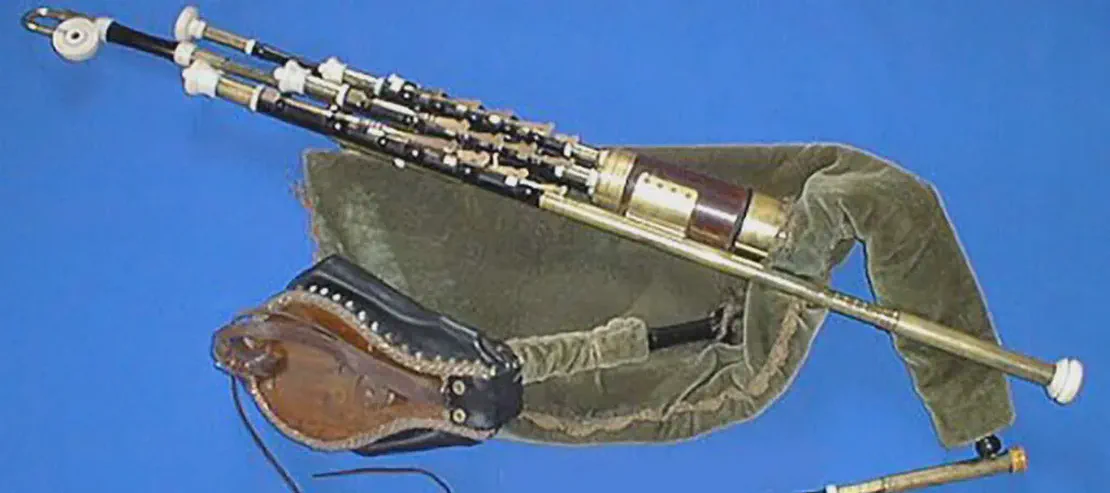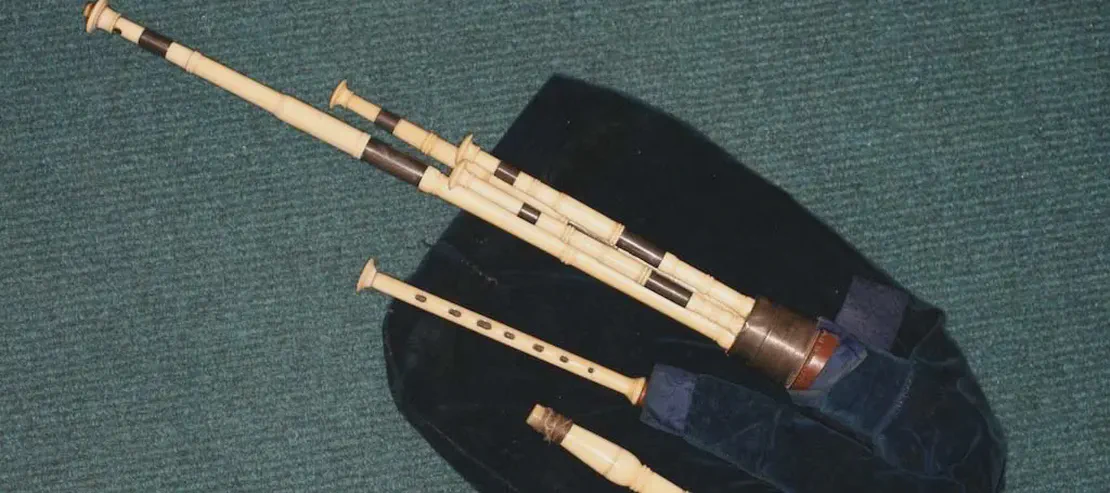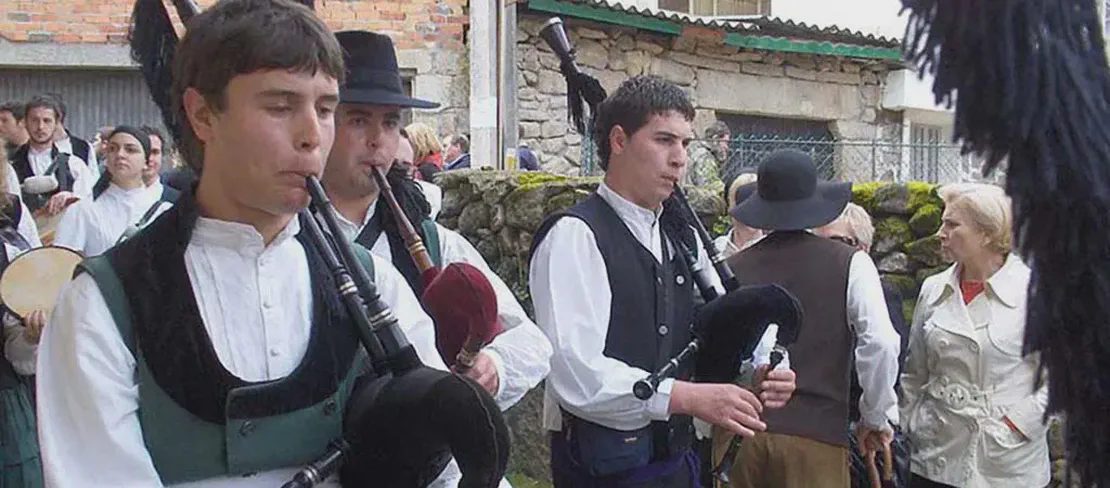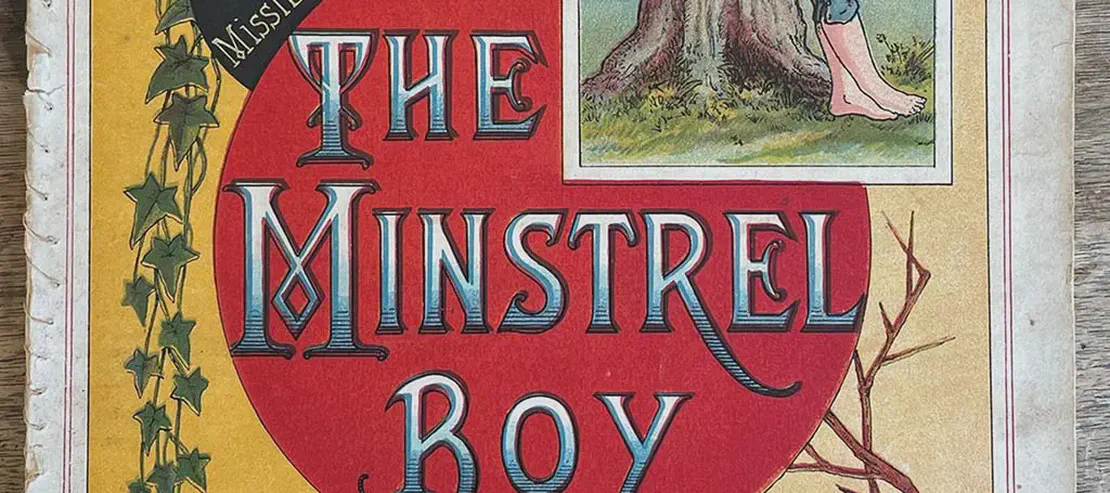bagpipes of ireland
- bagpiper
- Instrument
- August 18, 2024

Table of Contents
Bagpipes have a significant and storied history in Ireland, though they are often more closely associated with Scotland.
In Ireland, the most famous type of bagpipes is the Uilleann pipes (pronounced “ILL-un”), which differ from the more globally recognized Great Highland Bagpipes of Scotland. Here’s an overview of bagpipes in Ireland:
1. Uilleann Pipes
- Design and Sound: The Uilleann pipes are a sophisticated, quieter type of bagpipes played indoors. They are bellows-driven, meaning the player uses their elbow to pump air into the bag, unlike the mouth-blown Scottish pipes. The sound is more melodic and softer, suitable for traditional Irish music.
- Components:
- Chanter: The melody pipe, which has a range of two full octaves.
- Drones: Typically three, providing a harmonic background.
- Regulators: Additional pipes that provide chordal accompaniment, played with the wrist while fingering the chanter.
- Music: Uilleann pipes are used extensively in traditional Irish music, often in sessions alongside other instruments like fiddles, flutes, and bodhráns.
2. Great Irish Warpipes
- History: The Great Irish Warpipes, or Píob Mhór, were used historically in Irish warfare, much like their Scottish counterparts. These pipes were loud, with a deep, booming sound, designed to inspire troops in battle.
- Decline and Revival: The use of the Great Irish Warpipes declined after the 17th century but has seen some revival in the 20th and 21st centuries, particularly in ceremonial contexts.
3. Pastoral Pipes
- Connection to Uilleann Pipes: The Pastoral pipes were an 18th-century predecessor to the Uilleann pipes, played with both a bellows and a chanter that could play a full chromatic scale. They were primarily used in England and Ireland before evolving into the modern Uilleann pipes.
4. Cultural Significance
- Irish Traditional Music: The Uilleann pipes hold a special place in Irish traditional music. They are often seen as one of the most expressive instruments, capable of a wide range of emotional expression, from joyous to mournful.
- Symbol of National Identity: While less iconic globally than the Scottish pipes, the Uilleann pipes are a strong symbol of Irish cultural heritage and national identity.
- Modern Revival: The Uilleann pipes have seen a revival in modern times, with many young musicians taking up the instrument, and groups like Na Píobairí Uilleann working to preserve and promote the tradition.
5. Notable Pipers
- Séamus Ennis: A legendary Uilleann piper, Séamus Ennis was crucial in preserving traditional Irish music and is widely regarded as one of the greatest players of the instrument.
- Paddy Keenan: A modern master of the Uilleann pipes, Paddy Keenan is known for his virtuosic playing and contribution to Irish folk music.
6. Learning and Playing
- Instruction: Learning the Uilleann pipes is complex, requiring instruction from experienced pipers. Organizations like Na Píobairí Uilleann offer resources for learning the instrument.
- Popularity: Though challenging to master, the Uilleann pipes continue to attract musicians worldwide, contributing to the global appreciation of Irish traditional music.
7. Global Influence
- While the Uilleann pipes are distinctly Irish, they have influenced various music styles worldwide, appearing in everything from folk to classical and even contemporary music genres.
Conclusion
The bagpipes of Ireland, particularly the Uilleann pipes, are a vital part of the country’s musical heritage. They are celebrated for their unique sound and complexity, making them both a symbol of Irish tradition and a cherished instrument among musicians globally.


